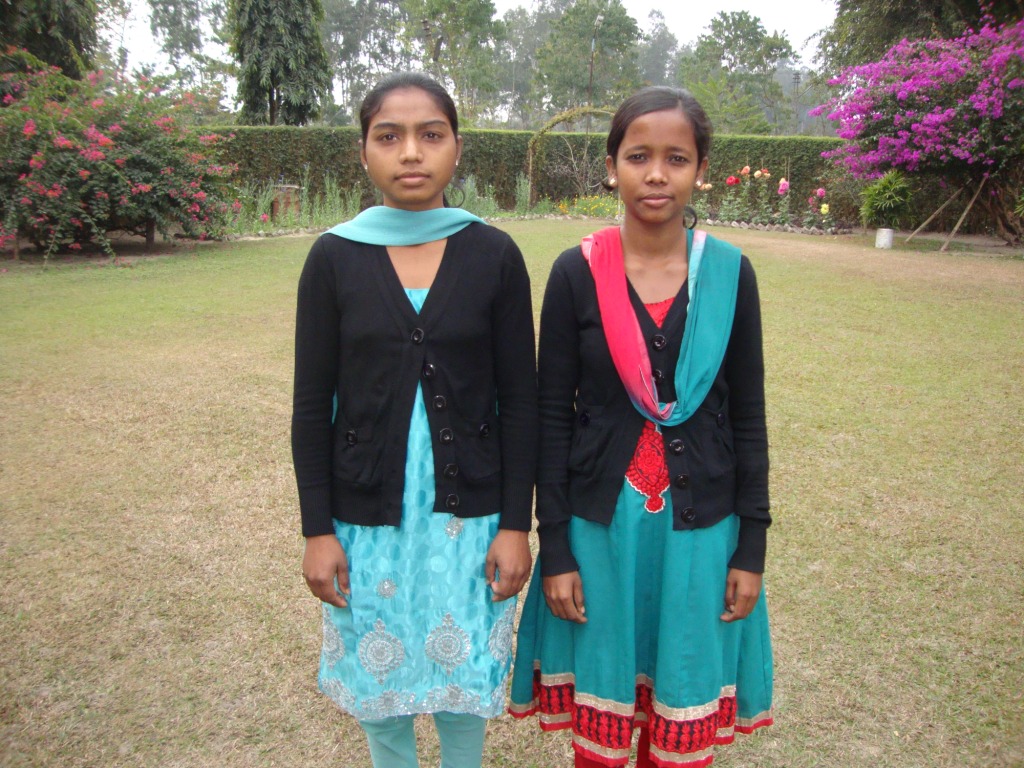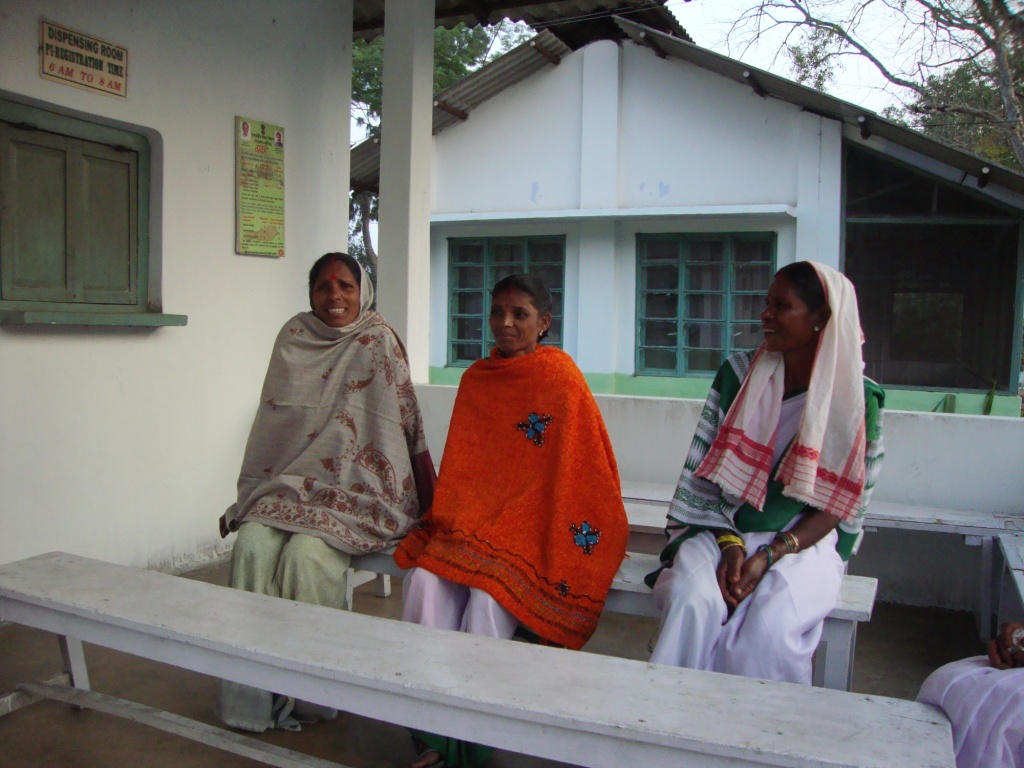How They Are Battling Child Marriage In Assam’s Tea Gardens
When Seema's parents decided to get her married at an early age, she approached her friends and convinced her family to drop the idea. Adolescent Girls Clubs, run by ABITA in partnership with UNICEF, are fighting against many similar cases of child marriage in Assam enabling young girls to dream big.

When Seema’s parents decided to get her married at an early age, she approached her friends and convinced her family to drop the idea. Adolescent Girls Clubs run by ABITA, in partnership with UNICEF, are fighting against many similar cases of child marriage in Assam enabling young girls to dream big.
Like any adolescent her age, Sangeeta Lohar nurses dreams about her future. A confident 17-year-old, she wants to complete her education and become a nurse one day – hastily clarifying with a smile, “a nurse, not in a tea garden hospital, but in a town”. Sangeeta is lucky. Not every girl her age in her community – Adivasis working in the tea gardens of Assam – are able to live out their childhood and weave dreams for themselves. Among this community, marrying children young has been the common practice for years and is one of the major reasons for its poor social indices today.
Most of the workers in Assam’s tea plantations are tribal migrants from the states of Odisha, Jharkhand, West Bengal and Andhra Pradesh. Their ancestors were brought here as labour more than a century ago and they have stayed on ever since. But while Assam’s tea industry has made tremendous progress over the years and reaped profits both in India and abroad, the situation of the workers who constitute its backbone remains dismal.

Ignorance, illiteracy, poor health, and poverty plague the community and the prevalence of child marriage is only a reflection of this. Moni Komar, a tea garden worker in Assam’s Sonitpur district, on the north bank of the River Brahmaputra, provides a glimpse into the local reality, “Girls, once they are 15 or 16, can work in the tea garden and earn some money for their families. From an early age they are taught to cook, wash dishes and clothes, and look after their siblings. So parents feel that their daughters are ready for marriage by the time they reach that age.” Moni herself was married at 17 – one year below India’s legal age of marriage – and she is already a mother of two at 20.
According to government data, although the prevalence of child marriage in Assam, at 40 per cent, is lower than the national average of 43 per cent (source: Unicef), there are pockets, such as the tea gardens, where the levels are much higher. A study by the Assam Branch of the Indian Tea Association (ABITA) in one of the most tea garden intensive districts of the state, Dibrugarh, found that one-fourth of all respondents (4,100 parents) felt that it was appropriate for girls to marry between the ages of 14 and 18.
Why are child marriages the preferred option for the community? The reasons are varied. For one, as Moni pointed out, girls here are considered better suited for work in the gardens, like the plucking of leaves, and are easily employed by the time they hit their teens. Once they become wage earners they are deemed to be of marriageable age.
Poor levels of schooling is the another important factor. Tea gardens have schools that run only up to the primary level. For the higher classes, parents have to send their wards to schools further away, which means the girls tend to drop out because of safety concerns. A general dis-preference for daughters adds to the problem. Observes Madan Kishan, medical health assistant of a tea garden hospital in Sonitpur and a member of the community, “The tea tribe community has always preferred male children to female ones. It is the usual argument – girls get married and go away while sons stay and look after parents in their old age. So they are eager to relinquish the responsibility of caring for their daughters as soon as possible.”
The third factor is a curious one, and not very prevalent in other communities. Elopement is a common occurrence here. Teenagers often run away with each other and get married against their families’ wishes. Reveals Anita Lohar, an Adivasi working in the tea gardens, “Elopements take place all the time. My niece, the daughter of my sister, Rupa, was just 15 when she went away with a boy who was around her age from a neighbouring line (demarcated labour colonies in the gardens are termed ‘labour lines’). They came back after a month and their parents had no option but to get them married.”
Rupa blames the mobile phone and “cinema” (read Bollywood movies) for this trend. “Our neighbour’s daughter also eloped. She was 16. This is why girls should be married before they can make such mistakes,” she observes bitterly.
The repercussions of child marriage, especially for girls, are extremely adverse. With early marriage comes early pregnancy, putting the lives of both the mother and baby at risk. According to Sandip Ghosh of ABITA, the mean age of motherhood for girls in the tea gardens is 19.3 years.
Dr Ziaur Rahman practices in a Sonitpur district tea garden and shares that most adolescent girls and women in the gardens are anaemic because of their poor diets and this, combined with early pregnancy, leads to higher maternal deaths. “Early pregnancy and multiple pregnancies are very obvious factors for the poor health of women here,” says Dr Rahman.
Early marriages have also resulted in several desertion cases. Explains Sarati Kisan, member of a Mothers’ Club, an ABITA initiative to spread awareness on issues of health and well-being, with each club comprising 12 to 15 women, “They get married young and then find it difficult to cope. If the girl becomes pregnant, the boy is not mentally prepared to shoulder the responsibility. Many young women return to their parents’ homes and lead lives of great uncertainty.”
Although it is on a declining trajectory, Assam has still one of the country’s highest maternal mortality ratios (MMR). The latest data puts the number at 328 per 100,000 live births. Mondakini Gogoi, an official at the National Rural Health Mission (NRHM) in Assam’s Jorhat district, believes the situation in the tea gardens have pushed up the state’s MMR and IMR (infant mortality rate) levels. “The gardens are our focus area now,” she says.

All hope is however not lost. A positive intervention to tackle child marriage in the tea gardens has been the Adolescent Girls Clubs run by ABITA in partnership with UNICEF. Take the case of Seema, a 14-year-old from a Dibrugarh district tea garden. When she learnt that her parents had decided to get her married, she got in touch with her friend, 13-year-old Rumi, and other members of her club. The girls together met up with Seema’s parents and convinced them of the physical, emotional, and other problems a girl like her would face if married so young.
“Seema’s grandmother was especially difficult to convince but she finally came around. We also told the family child marriage is against the law,” Rumi adds. Today the girls are thrilled to have Seema back in school. According to UNICEF, the clubs in the tea gardens have reported 144 cases of child marriage between 2008-2010, and have successfully stalled 12 of them – something of a feat considering how steeped the community is in this practice.
According to Anita Aind, a 19-year-old of the community who is doing her Bachelors in Education and wants to become a teacher, child marriage continues to take place but in fewer numbers.
“Parents now realise the importance of education. Take my case, my parents continue to work in the garden but ensured that I studied along with my brothers.”
This has also allowed young women like her to dream big. The words of Anita’s friend, Rupali, only go to reiterate this, “I am in Class 12 and want to do a course in nursing. It is because girls remain illiterate that they agree to early marriages. Most girls in our labour line are studying today and you won’t find any cases of child marriage there!”
Like this story? Or have something to share? Write to us: [email protected], or connect with us on Facebook and Twitter (@thebetterindia)
If you found our stories insightful, informative, or even just enjoyable, we invite you to consider making a voluntary payment to support the work we do at The Better India. Your contribution helps us continue producing quality content that educates, inspires, and drives positive change.
Choose one of the payment options below for your contribution-
By paying for the stories you value, you directly contribute to sustaining our efforts focused on making a difference in the world. Together, let’s ensure that impactful stories continue to be told and shared, enriching lives and communities alike.
Thank you for your support. Here are some frequently asked questions you might find helpful to know why you are contributing?


This story made me
- 97
- 121
- 89
- 167










